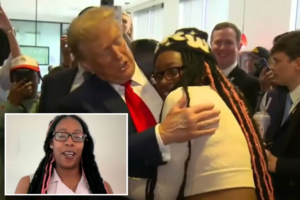
The Maasai of Kenya and Tanzania embody one of the most powerful images of tribal Africa, but it’s a guise that’s becoming increasingly imitated.
Companies around the world have, for some time now, continued to exploit the Maasai’s iconic cultural brand in a bid to infuse a patina of exoticism to their products and increase sales.
The most familiar, perhaps, harks back to Louis Vuitton’s 2012 spring/summer men’s collection that included hats, shirts and scarves inspired by the Maasai Shuka, a traditional African blanket cast in colorful shades of red and blue.
The key issue here is that the Maasai people aren’t being compensated for anything sold under these luxury brands’ names despite having helped them sell billions of dollars worth of goods worldwide, according to Light Years IP, a Washington, D.C., nonprofit that works on public interest intellectual property issues internationally.

As a result, another group known as the Maasai Intellectual Property Initiative (MIPI) has been created to challenge companies referring to or copying the signature Maasai style without a licensing agreement.
It hopes that by working with the community and forcing companies to obtain licenses from the Maasai that reasonable funds can then be distributed to the people.
“Nearly 80 percent of the Maasai population in Kenya and Tanzania are living below the poverty line,” the website explains. “Yet, their distinctive and iconic cultural brand and intellectual property concepts have been used commercially around the globe.”
Just as Burberry has the right to copyright and trademark its signature check, so, too, the Maasai should be able to protect its traditional designs. But, for some reason, while the rest of the fashion industry progresses, it continues to struggle to maintain an ethical business model.
By working with the Maasai through community boards and gatherings, the MIPI hopes to place control of the cultural brand back in the hands of its people and accrue the compensation that is deserved.
In fact, they’ve gone as far as to quantify exactly how much the Maasai are owed. It’s calculated that around 80 companies are presently infringing and as a result, the Maasai people should be collecting $10 million in licensing fees every year.
Read more here










More Stories
What the End of Race-Conscious College Admissions Could Mean for HBCUs – U.S. News & World Report
Supporter who hugged Trump at Atlanta Chick-fil-A says media isn't honest about coverage on black voters – New York Post
Elon Musk Cosigns Racist Claim That Black Students Have Low IQs – Yahoo News